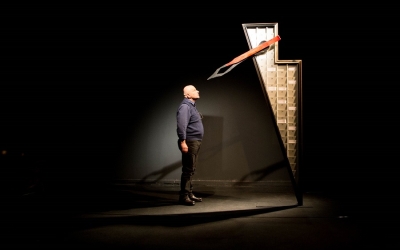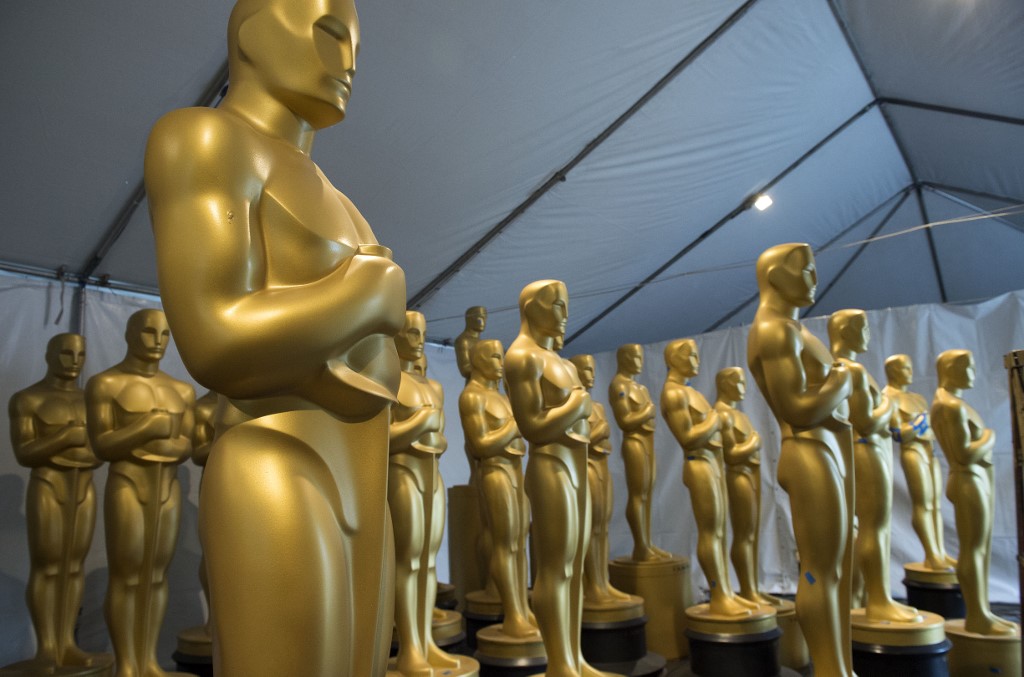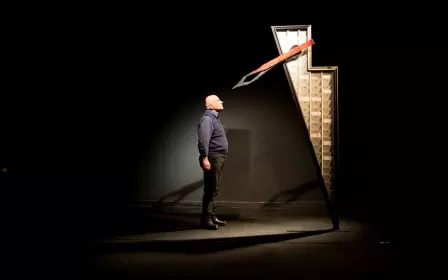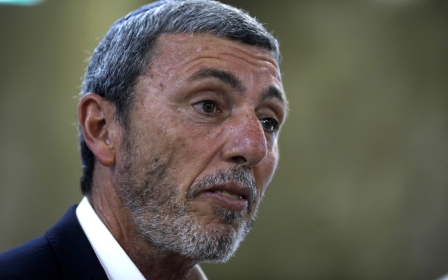'An ugly wave': Israeli artists say defunded film reveals culture of censorship
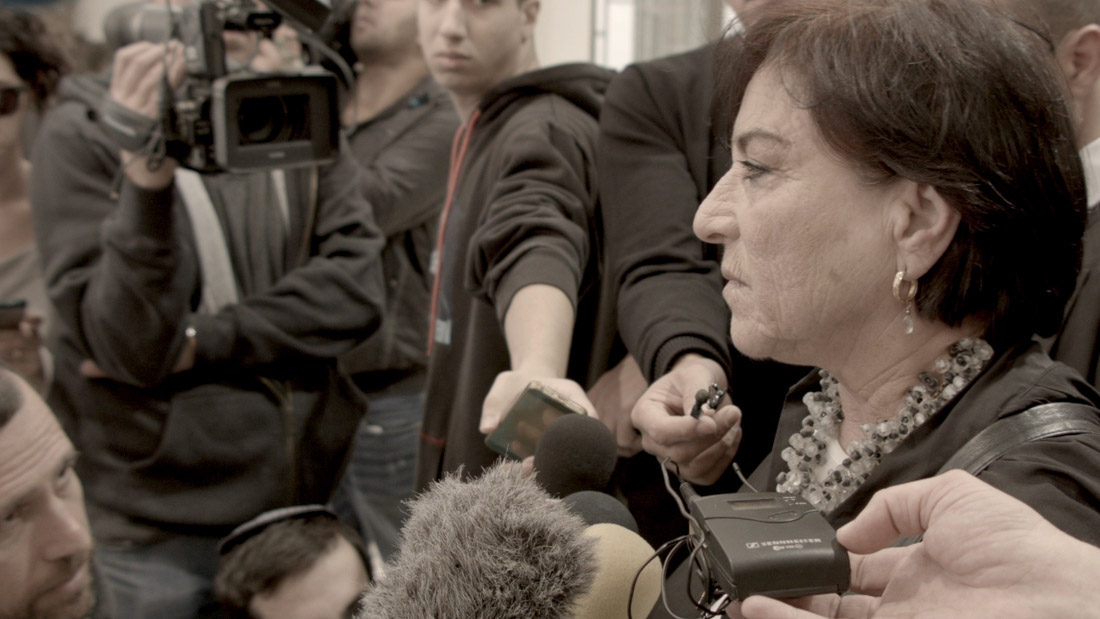
When the directors of the film Advocate captured the biggest prize at Israel’s most important documentary festival, they never imagined their victory would trigger tighter controls on freedom of speech in the country.
But that is exactly what has happened, raising questions of funding and freedom for Israeli artists who say they are watching the state slowly shrink the space for creative expression around them. One filmmaker describes it as censorship by bureaucracy.
“It’s part of an ugly wave that we are seeing all of the time. My feeling – and other people’s feeling – is that the public bodies that are supporting us as a documentary film industry want us to fall in line with the ‘spirit of the commander’,” said Hagit Ben Yaakov, chairwoman of the Israeli Documentary Filmmakers Forum.
'The public bodies that are supporting us as a documentary film industry want us to fall in line'
- Hagit Ben Yaakov, Israeli Documentary Filmmakers Forum
“'The commander’ doesn’t want to support any leftist material or content. They would prefer not to anger anyone if they can give their money to content that is not threatening authority.”
The latest uproar began in June when Advocate won top honours at Docaviv, the Tel Aviv International Documentary Film Festival. Along with the win came a distribution stipend of just over $42,000.
New MEE newsletter: Jerusalem Dispatch
Sign up to get the latest insights and analysis on Israel-Palestine, alongside Turkey Unpacked and other MEE newsletters
The film documents the life and work of well-known leftist attorney Leah Tsemel, branded by some as “the terrorists’ lawyer” because she defends Palestinians accused of terrorism in Israeli courts.
The win sparked a fervent backlash from right-wing organisations, which rejected the use of public funds to support the film. Israel’s Minister of Culture and Sport Miri Regev joined their outcry, reportedly calling the film’s focus on Tsemel “annoying and infuriating”, and demanding that the National Lottery revoke the top prize it had funded and end its support of Docaviv altogether.
Within two weeks or so, the lottery caved, announcing that, as of next year, it would no longer support the festival with a distribution stipend for the winning film. It has even launched an inquiry to see whether the prize awarded to Advocate can be revoked.
The lottery’s reaction sent Israel’s artist organisations out onto the streets. They protested a session of the National Lottery’s executive committee for art and culture. Chairman Avigdor Yitzhaki refused to talk with them, so one of the protesters found a way into the meeting and confronted him.
“This process at the National Lottery is, from our perspective, censorship pure and simple,” said Liran Atzmor, a veteran documentary film producer and one of the organisers of the protest.
Atzmor said he and other protesters understand from Yitzhaki that the lottery consider its decision later this year.
“They hope that this announcement will persuade us to back off... They told us to be quiet and maybe things would settle down.”
But as protests spread to Israeli artists beyond the film industry that seems an unlikely outcome.
Al-Midan Theatre
The controversy over Advocate is only the latest in a long line of disputes relating to artistic freedom in Israel.
The Al-Midan Theater, an Arabic-language centre in Haifa, has been struggling for several years to hold on to its funding after staging a play about a Palestinian prisoner in 2015.
After the run of the play, the Haifa municipality and the Ministry of Culture and Sports froze the theatre’s funding for 2016 and 2017 - worth over $284,000 each year - leaving the theatre in debt and forcing it to limit its productions.
The theatre successfully petitioned the municipality and the ministry and had most of its funds renewed. But this week, Israel’s High Court ruled that the theatre was not eligible for the ministry’s funding in 2016 and 2017 because not enough plays were staged and Al-Midan had not met the required conditions for the money.
Ben Yaakov said the limitations on artistic freedom, like what happened at Al-Midan, are often done in technical ways to obscure the real intentions.
“It’s very difficult to point your finger at the exact things or the assumptions because they use excuses that can sound logical. I call it censorship under bureaucracy,” she said.
Protest expands beyond filmmakers
In recent weeks, the protests over Advocate, which started with filmmakers, have expanded to poets, authors and other figures in the Israeli arts world who have announced that they will forgo their National Lottery support as a result of its decision.
'They told us to be quiet and maybe things would settle down'
- Liran Atzmor, documentary film producer
On top of this, 39 applicants for the National Lottery’s 2019 Sapir Prize for Literature said they would donate their award money to support the documentary if they won.
Two judges of the prize resigned their positions, with one declaring on Facebook that the National Lottery decision was “part of a wave of shady attempts to restrict freedom of speech and artistic creativity”.
Those involved in Israel’s art world say the applicants’ gesture is a significant concession for a sector that already struggles under severe budget limitations.
“For artists to relinquish a prize awarded to them is a very brave thing,” said Ibtisam Marana, a documentary film director and producer who sits on the National Lottery’s arts and culture committee.
“Culture is an important point of pride in Israel, as a liberal and free country. The National Lottery has tremendous power because it can underwrite this creativity,” she said.
In the case of Advocate, it can also take away the power of a film to reach wider audiences. The top winner at Docaviv is recognized as a potential contender for the Academy Awards, but to win an Oscar, a film must be well-promoted – and that takes funding, said Philippe Bellaiche, the film's co-director and co-producer.
“The National Lottery prize is actually a marketing stipend for an Oscar contender, so that we can build momentum for the film prior to the Oscar voting,” he said.
Marana said she was the acting chairwoman of the committee that awarded a National Lottery grant supporting the production of Advocate. She doesn’t remember any arguments over funding the film which, she said, the committee thought was excellent.
“Not because of its subject, but because of the production itself, the film itself. [The National Lottery] also supported films about settlements. And in those cases, too, I supported the decision to grant stipends, because those films contribute an interesting perspective,” Marana said.
'The National Lottery prize is actually a marketing stipend for an Oscar contender'
- Philippe Bellaiche, co-director and co-producer of 'Advocate'
Marana, who has been backing the protests, said if the lottery doesn’t backtrack on its decision now, she will resign.
“We work long hours and were promised the freedom to exercise our own judgment. We are supposed to be strictly independent and able to act and make decisions based solely on artistic criteria," she said.
Atzmor said he calls on the lottery’s culture committee to follow the lead of the Sapir prize judges.
“They made it clear that there are red lines. We are always struggling to obtain the resources to make art, but what is it all for, if not for artistic freedom?” he said.
Meanwhile, he said he worries about creative freedom in Israel – and about Israeli society itself.
“I worry that people weaker than I, less experienced and less able to earn a living, will stop making the films they want to make because they are being silenced and threatened. They are being told that it’s not worth their while to make the films they want to make because they won’t get any support."
Middle East Eye delivers independent and unrivalled coverage and analysis of the Middle East, North Africa and beyond. To learn more about republishing this content and the associated fees, please fill out this form. More about MEE can be found here.


